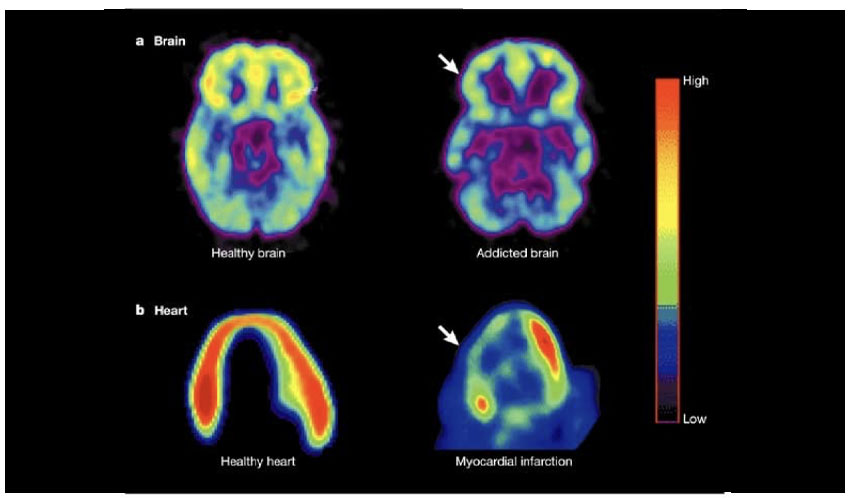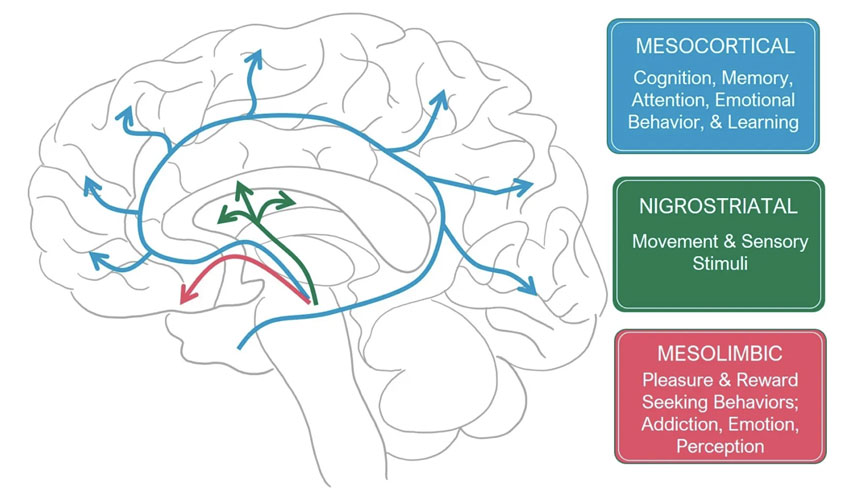- Mumbai, New Delhi, Bangalore
- (+91) 81518 30000
- WhatsApp Now
- contact@vedawellnessworld.com
It’s not a simple case of weak willpower. Instead, the human brain can be conceptualized as a network of specialized regions, each with distinct functions.
The default mode network, for example, facilitates introspection and mind-wandering, while the central executive network is responsible for sustained attention and task completion. Additionally, the salience network plays a critical role in prioritizing information and filtering out distractions. This framework underscores the biological underpinnings of focus, suggesting that challenges with concentration may not be a reflection of personal failing but rather the natural interplay of these interconnected brain systems. By acknowledging this complexity, we can develop more effective strategies for managing focus and optimizing cognitive performance.
New research suggests that in addiction, these networks become dysfunctional. People prone to addiction may have pre-existing weaknesses in areas like working memory and decision-making. This makes it difficult to weigh the long-term downsides of drugs against the immediate, often intense, pleasure they offer.

Adding another layer of complexity, some individuals may have a “reward deficiency syndrome.” This means their brain’s natural reward system is underactive. Activities that most people find enjoyable simply don’t hold the same appeal. Drugs, on the other hand, can create a “hyper-rewarding” experience, hijacking the pleasure circuits and making them seem like the only truly satisfying option.

Two other factors play a significant role: executive dysfunction and emotional dysregulation. Executive dysfunction refers to difficulty controlling impulses and making good choices, especially under pressure. Imagine a city with a malfunctioning traffic control system – chaos ensues. Similarly, executive dysfunction makes resisting drug urges incredibly challenging.
Emotional dysregulation describes the difficulty managing negative emotions like stress, anxiety, and sadness. Drugs might offer a temporary escape, but it’s like a band-aid solution. This highlights the importance of addressing the underlying emotional issues that can contribute to addiction.
The good news? This deeper understanding of the brain’s role in addiction allows for earlier identification of at-risk individuals and the development of targeted treatment approaches. By addressing these underlying weaknesses, we can empower individuals to develop healthier coping mechanisms and resist the compulsive pull of drugs.
This research paves the way for a future where addiction is seen not as a moral failing, but as a complex brain disorder with effective treatment options. By understanding the “why” behind addiction, we can create better support systems and interventions to help people overcome this challenging condition.

VEDA Luxury Rehab Centre recognizes addiction as a complex brain disorder. Their program leverages this understanding to address the specific needs of each client. Their 1:1 client-to-therapist ratio allows for in-depth assessments to identify any pre-existing cognitive weaknesses or emotional dysregulation. VEDA incorporates therapies like Dialectical Behaviour Therapy (DBT) to equip clients with healthy coping mechanisms for managing difficult emotions. Additionally, their focus on holistic wellness through practices like yoga, meditation and mindfulness can help regulate the brain’s reward system, making healthy activities more appealing. VEDA’s unique approach empowers individuals to overcome the underlying factors that contribute to addiction and build a strong foundation for long-term recovery. Seeking professional help from a doctor or mental health professional is vital for diagnosis and development of a treatment plan. please feel free to call +918151830000.